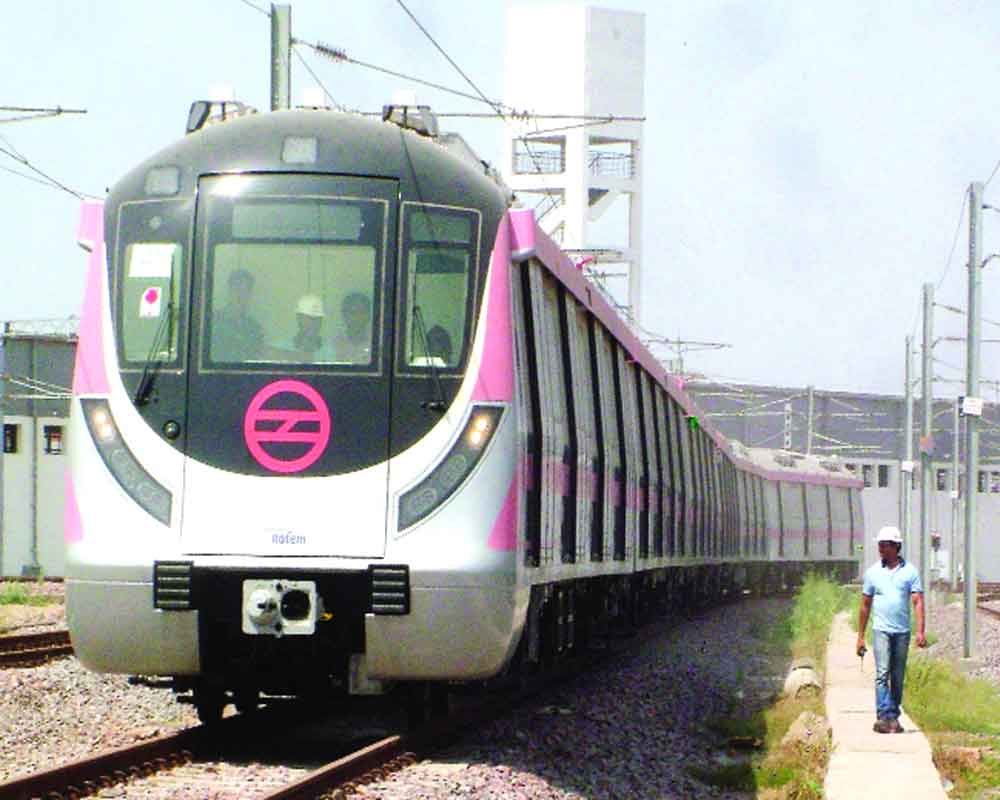The Union Cabinet on Wednesday approved two new corridors of Delhi Metro’s Phase-IV project —Lajpat Nagar to Saket G-Block and Inderlok to Indraprastha. The total project cost of the two corridors is estimated at Rs 8,399 crore, which will be sourced from the Union and Delhi Governments, and international funding agencies.
These two lines will comprise 20.762 kms. The Inderlok — Indraprastha corridor will be an extension of the Green Line and will provide interchange with the Red, Yellow, Airport Line, Magenta, Violet and Blue Lines, while the Lajpat Nagar - Saket G Block corridor will connect the Silver, Magenta, Pink and Violet Lines.
The Lajpat Nagar — Saket G Block corridor will be entirely elevated and will have eight stations. The Inderlok — Indraprastha corridor will have 11.349 kms of underground lines and 1.028 kms of elevated lines comprising 10 stations.
The Inderlok — Indraprastha Line will provide enhanced connectivity to the Bahadurgarh region of Haryana as commuters from these areas will be able to travel on the Green Line to directly reach Indraprastha as well as various other areas of central and east Delhi.
These new lines will provide direct connectivity and reduce travel time for passengers, eliminating the need for long detours.
They will also connect busy commercial areas, addressing the increasing congestion in the city.
“Today two new metro corridors have been given permission, on which Rs 8,400 crore will be spent. There will be about 8.4-kilometer metro line from Lajpat Nagar to Saket G Block. It will have eight stations. The second is from Inderlok to Indraprastha, this will be a metro line of about 12.4 kilometre. It will be completed by March 2029...,” Union Minister Anurag Thakur said while addressing a Press conference after the Union Cabinet meeting.
“Eight new interchange stations will come up on these corridors at Inderlok, Nabi Karim, New Delhi, Delhi Gate, Indraprastha, Lajpat Nagar, Chirag Dilli and Saket G Block. These stations will significantly improve the interconnectivity among all the operational lines of the Delhi Metro network,” he said.
This metro stretch will provide enhanced connectivity to the Bahadurgarh region of Haryana. Presently, the Delhi Metro Rail Corporation Limited (DMRC) has about 427 km of metro network including 34 km of RRTS operational for NCR reason. The Delhi Metro currently operates on a network of 392.44 km spanning over 12 corridors in NCR, consisting of 286 stations. The Delhi Metro is already constructing a network of 65 km as part of its fourth phase of expansion. These new corridors are expected to be completed by March 2026 in stages.
Over 60 lakh passengers commute on Delhi Metro every day. The Delhi Metro is now one of the fastest growing Metro networks in the world. The Delhi Metro Rail Corporation Limited (DMRC) has already started the pre-bid activities and preparation of tender documents.
Earlier, the Delhi Government had approved Memorandums of Understanding (MoUs) for the development of three Metro Rail lines and is seeking approval for three other corridors under Phase IV. The recent approval of the Charbagh-Vasant Kunj corridor in Uttar Pradesh and the commencement of integrated trials for Phase-1 of the Metro-3 corridor in Mumbai are also significant developments in the expansion of the Metro network.

















